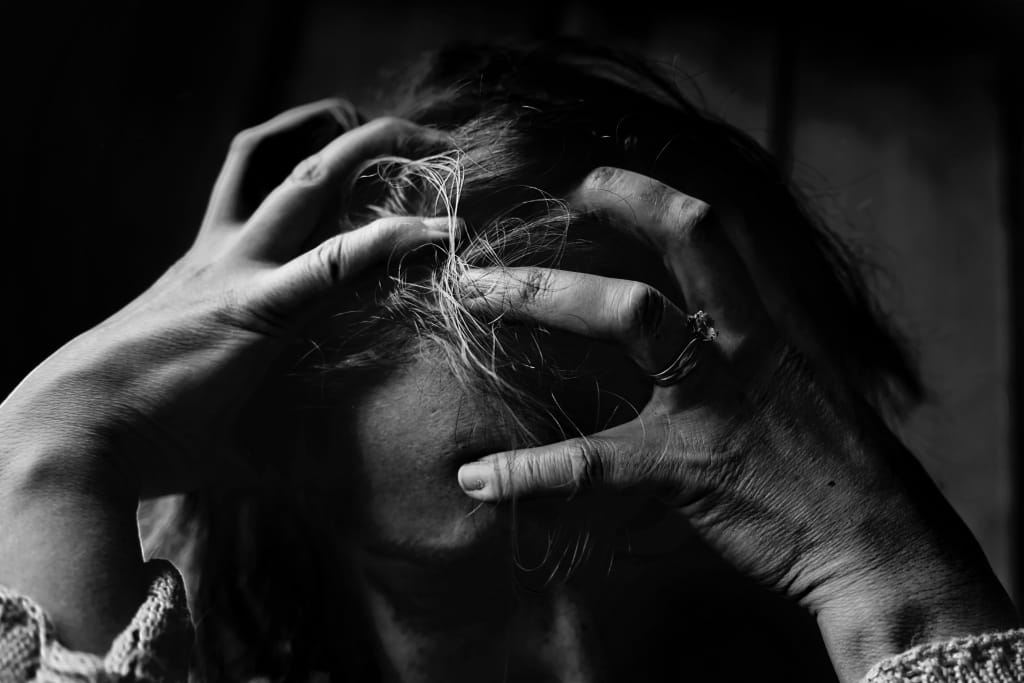Understanding Depression: Symptoms, Causes, and Treatment
Learn about the symptoms, causes, and treatment options for depression. Get professional help and manage your mental health effectively.

Depression is a common mental health disorder that affects millions of people worldwide, including 1 out of 10 individuals in the United States. It can significantly impact a person's daily life, making it difficult to carry out routine activities. This article will provide an in-depth analysis of depression, including its symptoms, causes, and treatment options.
What Is Depression?
Depression is a complex mental health disorder that is characterized by a persistent feeling of sadness, emptiness, and hopelessness. It is more than just feeling down or having a bad day; it can affect a person's overall mood, energy level, and interest in daily activities. Depression can interfere with a person's ability to think, concentrate, and make decisions, making it difficult for them to function normally in their daily life.
People with depression may experience a variety of symptoms that can range from mild to severe, including feelings of worthlessness, guilt, or hopelessness, loss of interest in activities they once enjoyed, changes in appetite and sleep patterns, irritability, fatigue, and physical symptoms like headaches or stomachaches.
The causes of depression are not fully understood, but researchers believe that a combination of genetic, biological, environmental, and psychological factors can contribute to its development. For example, people with a family history of depression may be more susceptible to developing the disorder themselves, while imbalances in brain chemicals like serotonin or dopamine can also play a role. Stressful life events, such as trauma, abuse, or the loss of a loved one, can trigger depression, as can other medical conditions like chronic pain, thyroid disorders, or substance abuse.
It's important to note that depression can affect anyone, regardless of age, gender, or background. Although women are diagnosed with depression more often than men, it's not a sign of weakness or a personal failing. Depression is a real illness that requires proper diagnosis and treatment. With the right treatment, most people with depression can experience significant improvement in their symptoms and quality of life.
Symptoms of Depression
Depression can manifest in various ways, with each person experiencing different symptoms. Some of the common symptoms of depression include:
- Persistent sadness or feelings of hopelessness
- Loss of interest in activities that were once enjoyable
- Changes in appetite or weight
- Insomnia or oversleeping
- Fatigue or loss of energy
- Difficulty concentrating or making decisions
- Thoughts of self-harm or suicide
Causes of Depression
Depression is a complex disorder that can occur due to various reasons, including biological, genetic, environmental, and psychological factors. Some of the common causes of depression include:
- Genetics: Depression can run in families, suggesting that genetic factors can contribute to the disorder's development.
- Brain chemistry: Imbalances in neurotransmitters, which are chemicals in the brain that regulate mood, can lead to depression.
- Environmental factors: Trauma, abuse, neglect, or other stressful life events can increase the risk of depression.
- Medical conditions: Chronic illness, hormonal imbalances, or substance abuse can lead to depression.
Treatment for Depression
Depression is a treatable disorder, and several options are available to manage the symptoms effectively. The most common treatments for depression include:
- Psychotherapy: Talk therapy, such as cognitive-behavioral therapy (CBT), can help individuals identify negative thoughts and behaviors and replace them with positive ones.
- Medications: Antidepressants can help alleviate symptoms of depression by balancing brain chemistry.
- Lifestyle changes: Engaging in regular exercise, eating a balanced diet, and getting adequate sleep can help reduce symptoms of depression.
- Alternative therapies: Yoga, meditation, and acupuncture have shown promise in reducing symptoms of depression.
How to Help Someone with Depression
If you know someone who is experiencing depression, there are several ways you can help. Some of the ways to support someone with depression include:
- Listen to them without judgment and offer emotional support
- Encourage them to seek professional help and offer to accompany them to appointments
- Help them engage in healthy behaviors, such as exercising or eating a balanced diet
- Avoid making assumptions or blaming them for their depression
Conclusion
Depression is a common mental health disorder that can significantly impact a person's life. Understanding the symptoms, causes, and treatment options can help individuals manage the disorder effectively. If you or someone you know is experiencing depression, seek professional help immediately.
Recognizing Burnout 6 Signs You’re Not Lazy, You Just Need Self Care Click here
About the Creator
Samuel Gabriel
Meet Samuel, the inspiring self-made entrepreneur who overcame incredible odds to build his successful business from scratch. With a passion for helping others achieve their dreams, Read now and be inspired!





Comments
There are no comments for this story
Be the first to respond and start the conversation.